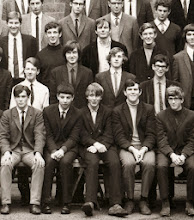
Aaah... Bit more time now, with my companion moths blog www.martinsmoths.blogspot.com just gone into hibernation. So I will try to catch up after the very erratic progress of True North in recent months. Sorry.
I was on the M1 near Rotherham this week and just caught a glimpse of Keppel's Column, one of the four great follies on the Wentworth estate (above, from above and beautifully betrayed to GoogleMaps by its shadow), whose history and beauty - as a great dark hole at night amid all the lights of urban South Yorkshire - is so well described in Catherine Bailey's Black Diamonds, praised in a post some time ago. Follies are always fun to see and explore, but they almost always have a deeper interest; in the case of the Wentworth ones, they introduced me to the strength of support in 18th century England for the American rebels. The Wentworths, including the Marquis of Rockingham who was twice Prime Minister, were staunchly in this camp. Their own, Northern, sense of independence was one of the reasons why. As for Keppel, he was another sympathiser with the Americans, a highly political admiral who was also an MP and would, I am sure, be full of comments about British foreign policy were he alive today.
Follies and similar curiosities are everywhere in the North. Just two examples of books which have helped me with them, for now, but I'll add others. The Story of Nun Monkton by Rosemary Enright, a beautifully-produced and characterfully-written book, published by a group of local villagers, has this nice picture of the Payler monument in the Priory's grounds. It serves as an excellent introduction to the dead end community near York, where the Alice Hawthorn pub, named after a racehorse, has - thank goodness - reopened after a period of closure. http://the-alice.co.uk/
The East Riding Treasure Hunt by Howard Peach (Smith Settle 1995) is full of goodies in this, often-overlooked part of the North. My favourite is the Waggoners' Memorial at Sledmere, erected by Sir Mark Sykes to honour 1200 farmworkers from his estate who formed an expert battalion of horse-handlers in the First World War ( a similar operation to that so eloquently dramatised by Michael Morpurgo in The War Horse). I especially like it in part because it gave me the chance to fulfill one of my ambitions - to get the word 'wainwright' into The Guardian as a common noun. Sad, I know, but we all have these whims.



No comments:
Post a Comment